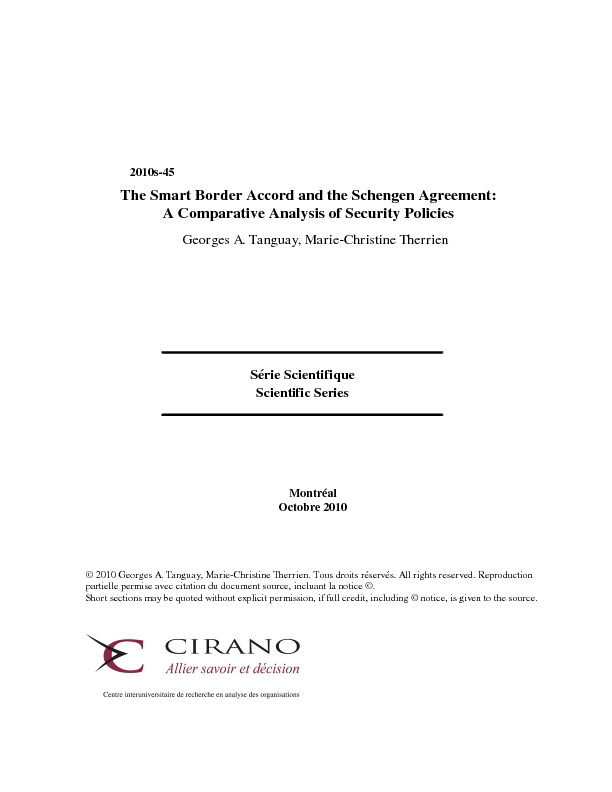The Smart Border Accord and the Schengen Agreement: A Comparative Analysis of Security Policies
Focusing on cooperation and coordination, we compare the security policies of Europe's Schengen Agreement and the Canada-U.S. Smart Border Accord. To do so, we argue that national security is a public good and its production should be analyzed in a strategic context. We show that efficient border policies could require that countries collaborate and that the outcomes of such a collaboration are function of four fundamental factors: i) national sovereignty issues; ii) the number of participating countries; iii) prisoner's dilemma problems and iv) the payoff structure and the level of publicness related to security measures. In light of these factors, we underline the Schengen and U.S.-Canada differences. This allows us to show that the U.S. and Canada could reach optimal global security using independent border policies and a common security perimeter would not be necessary.
[ - ]




